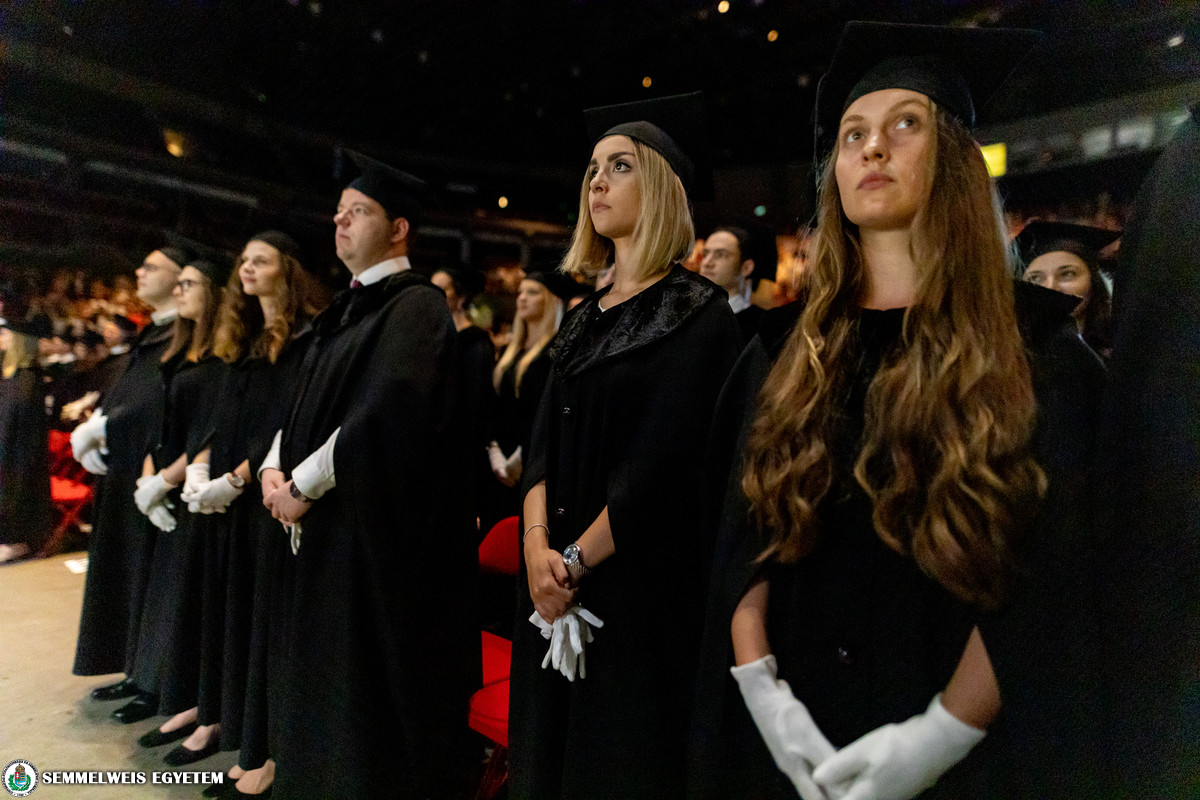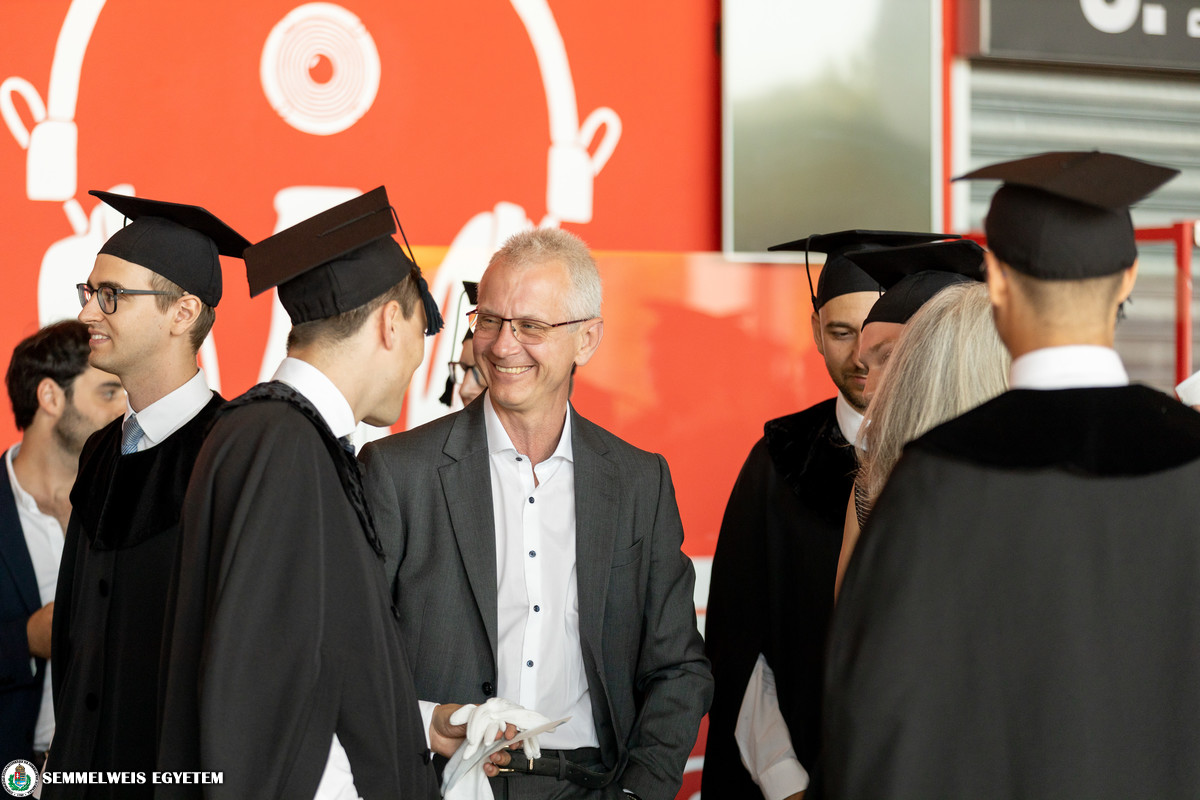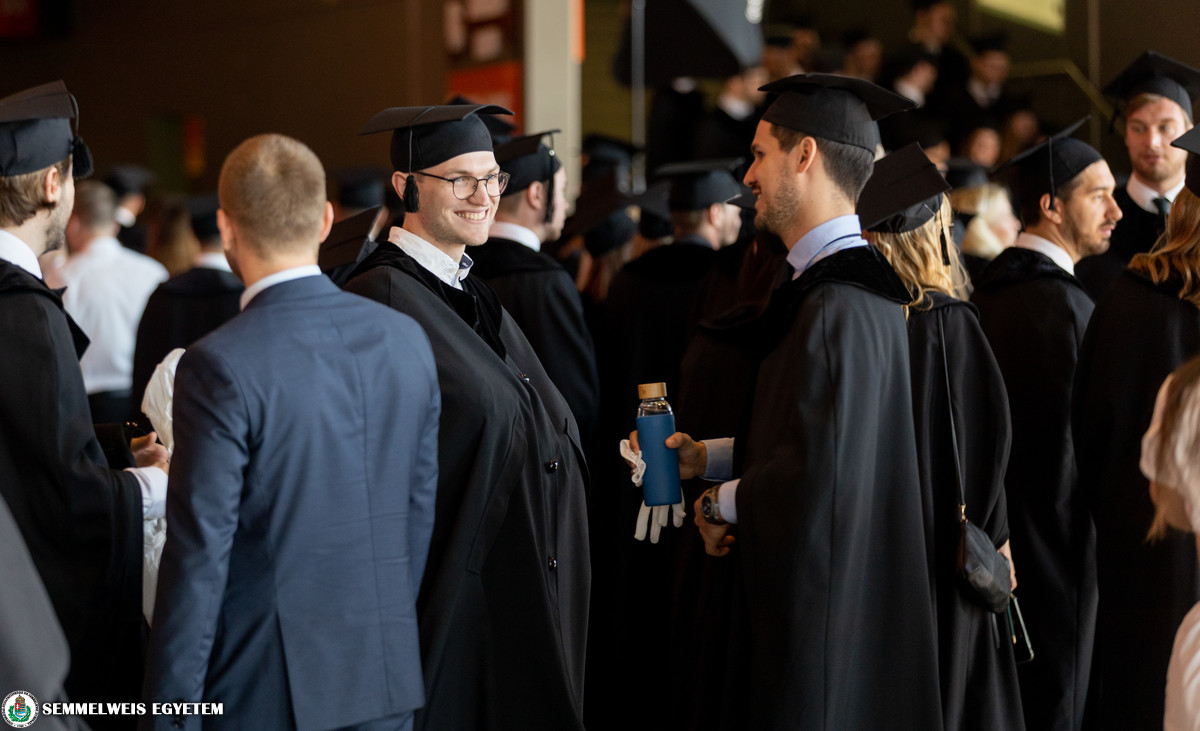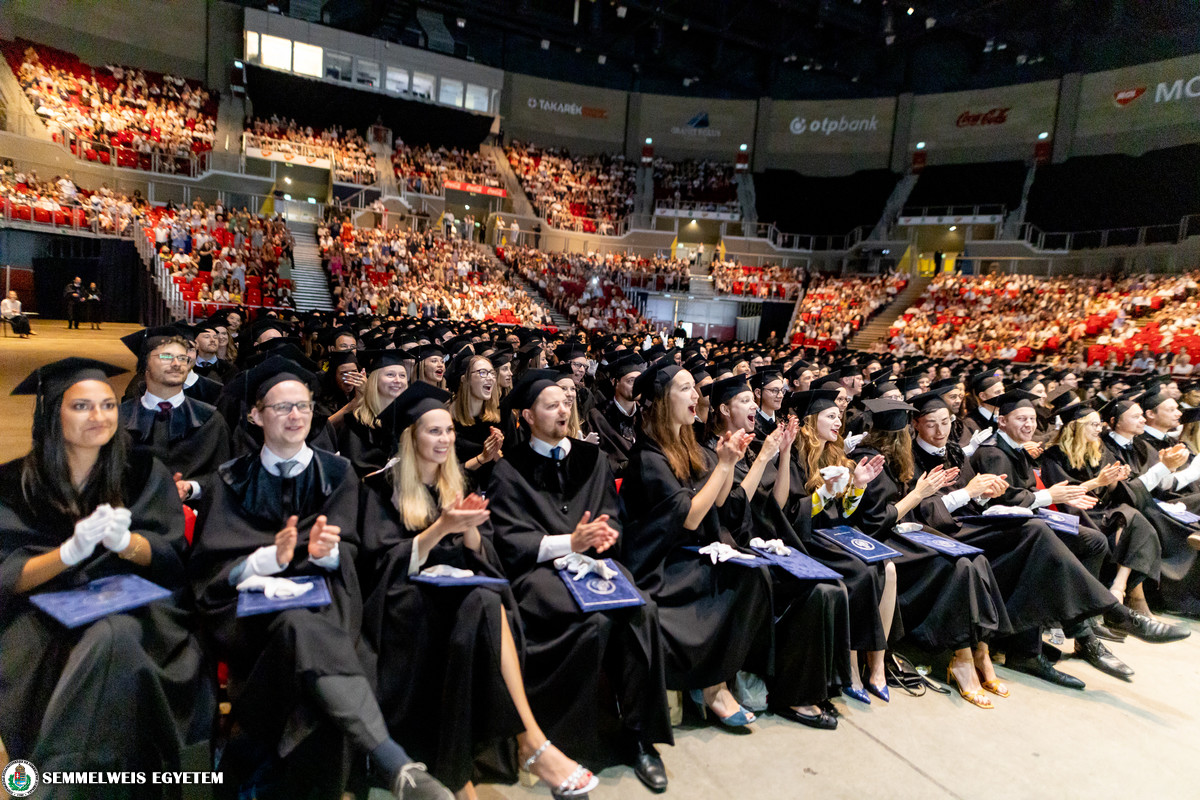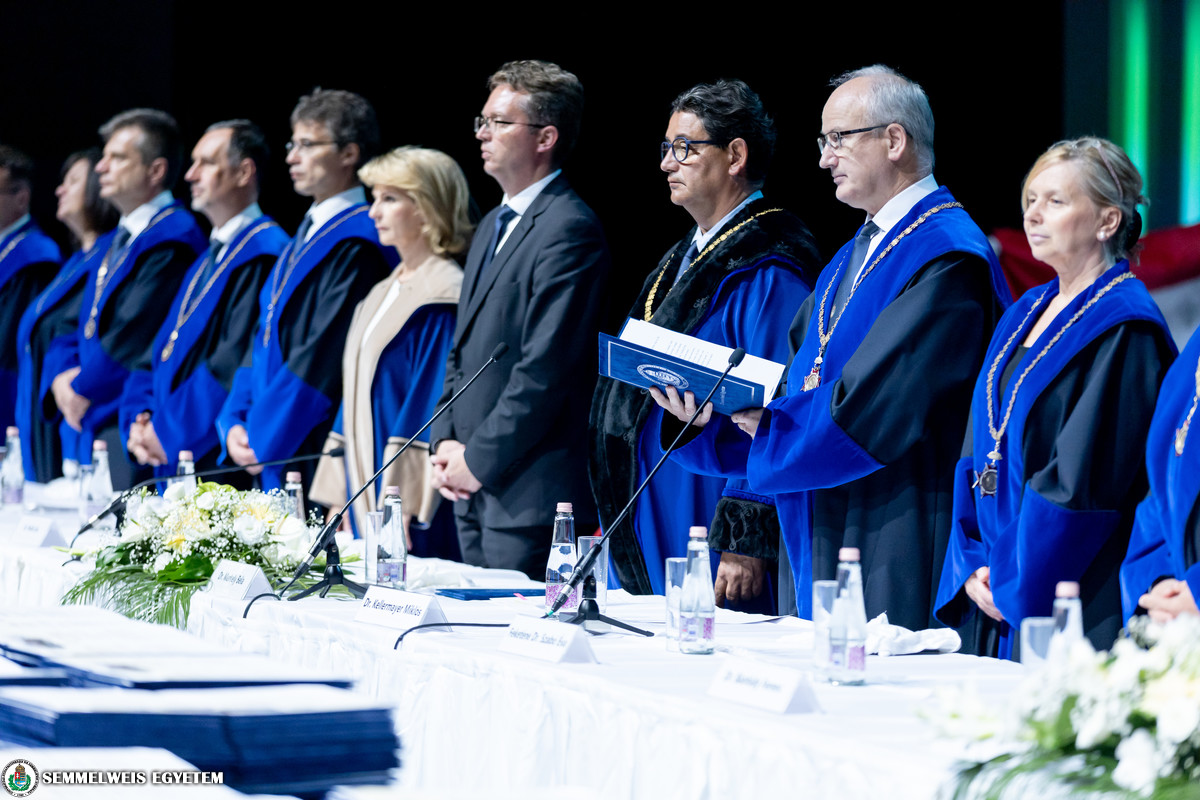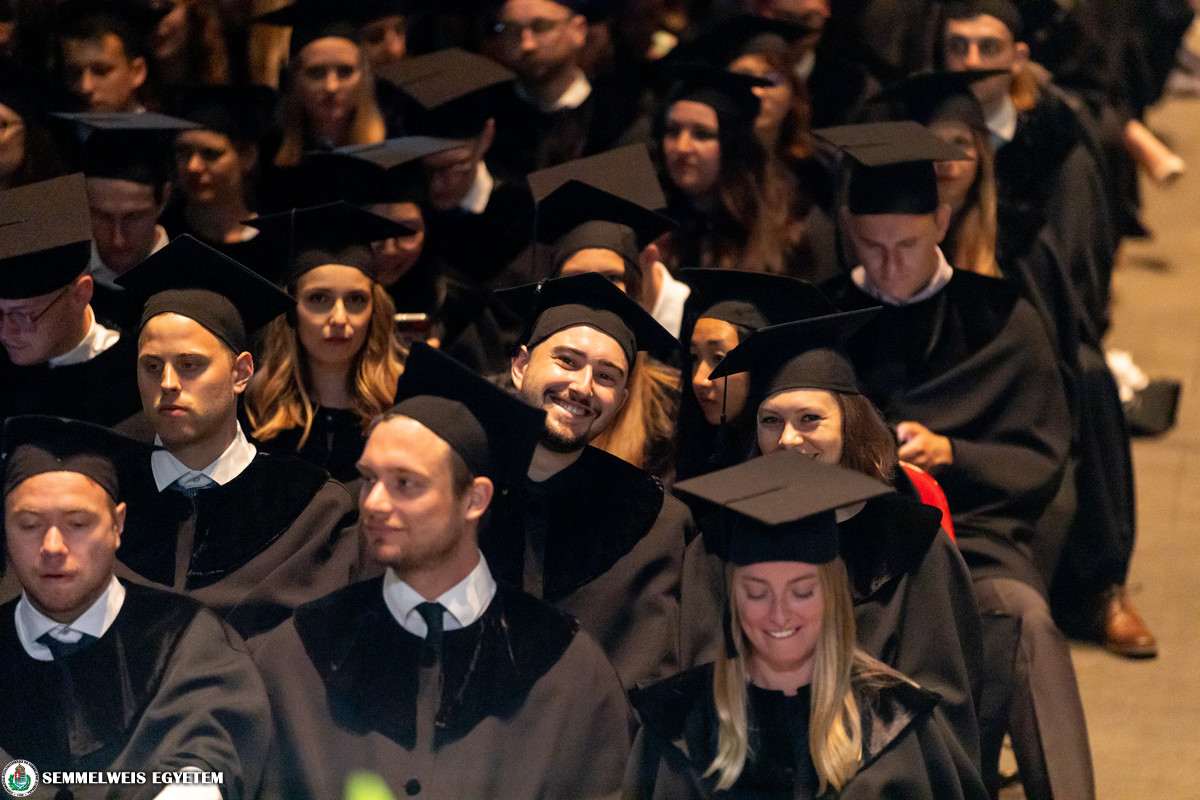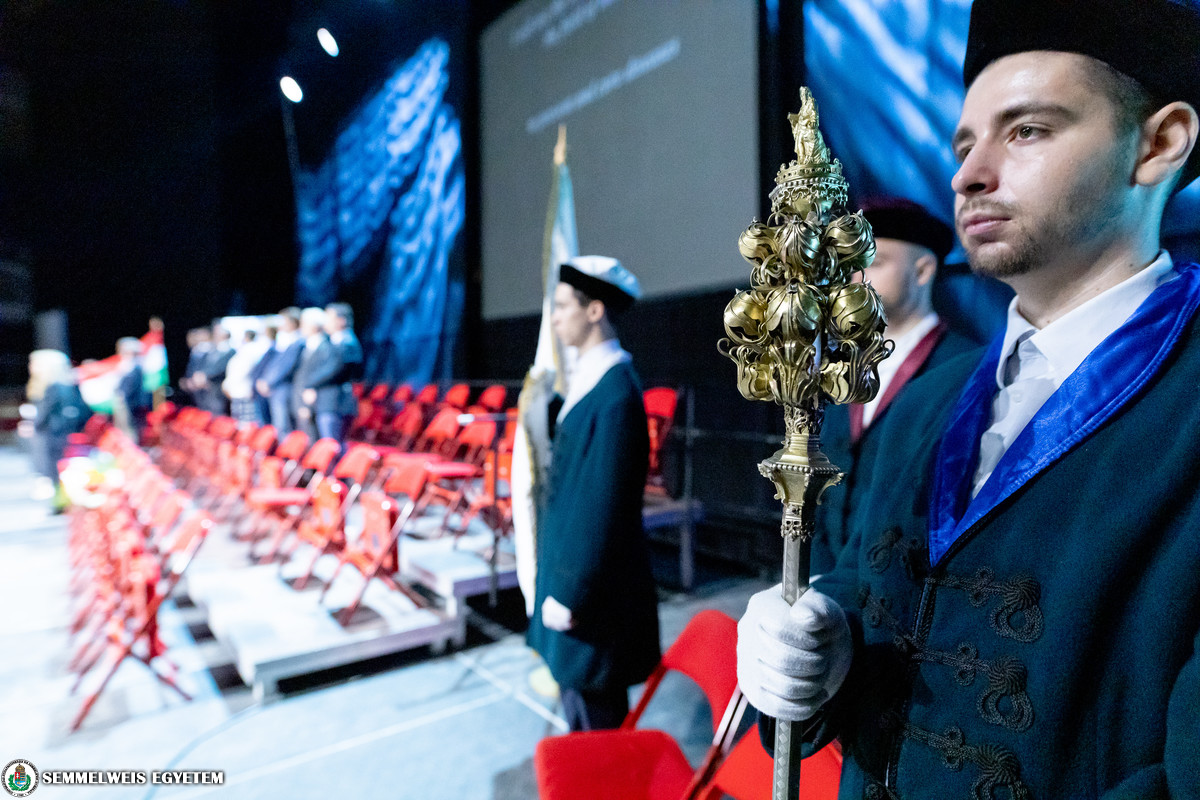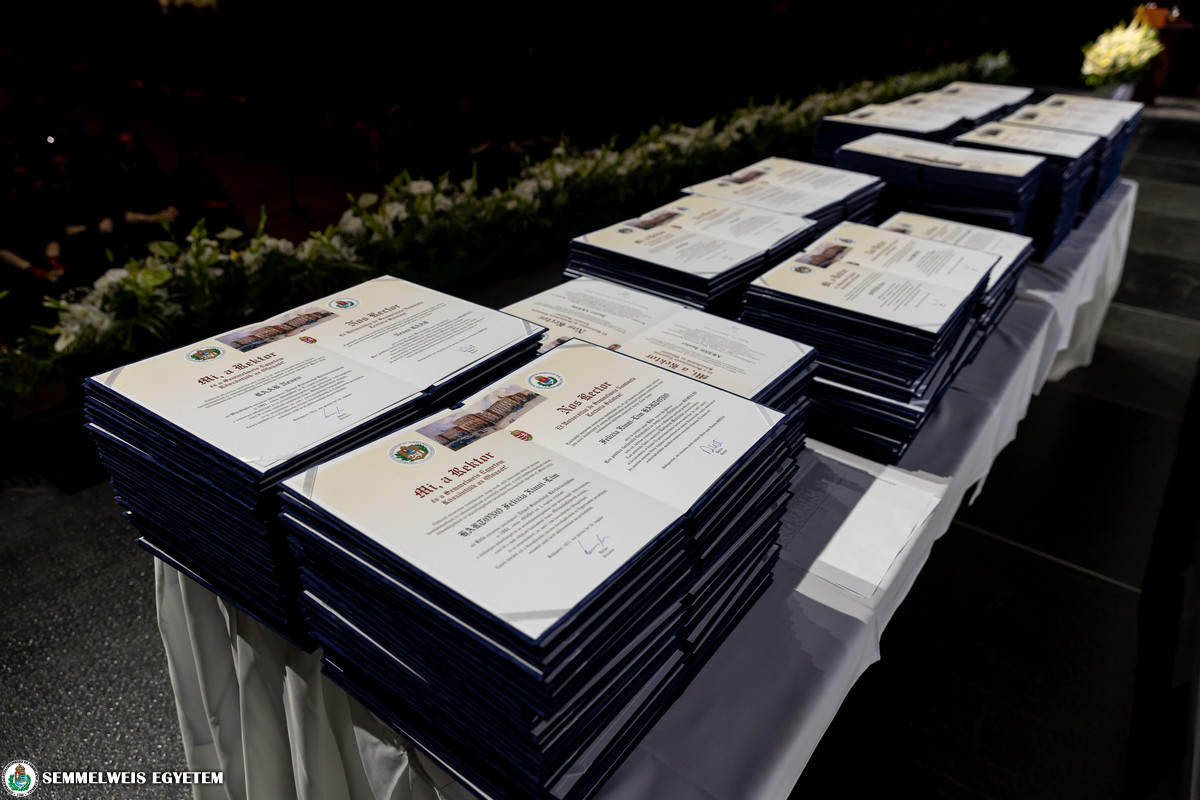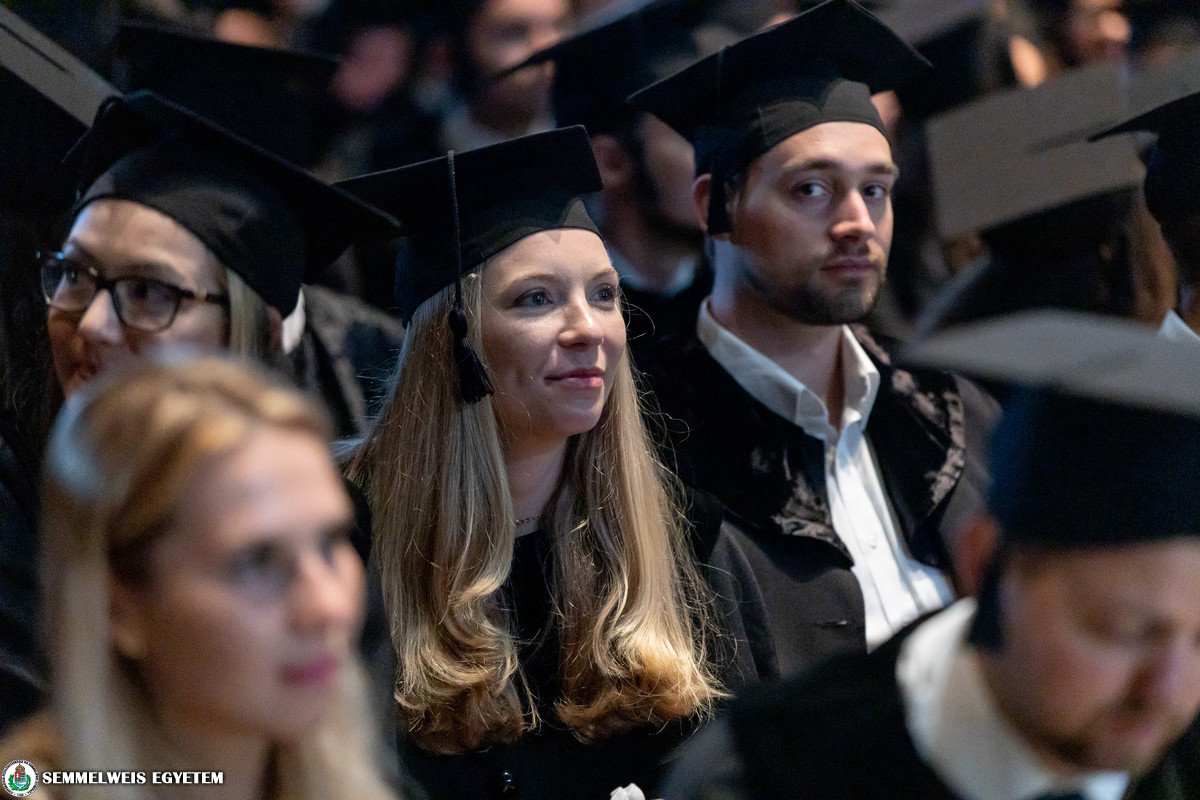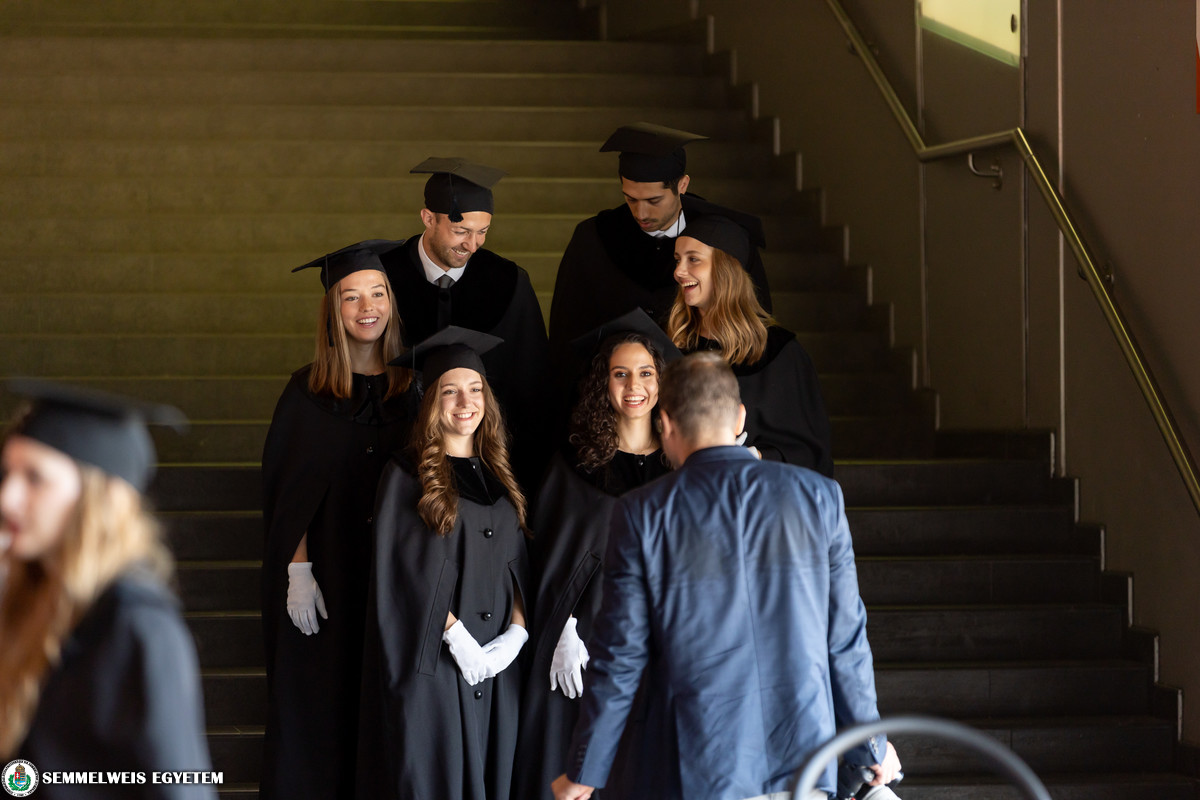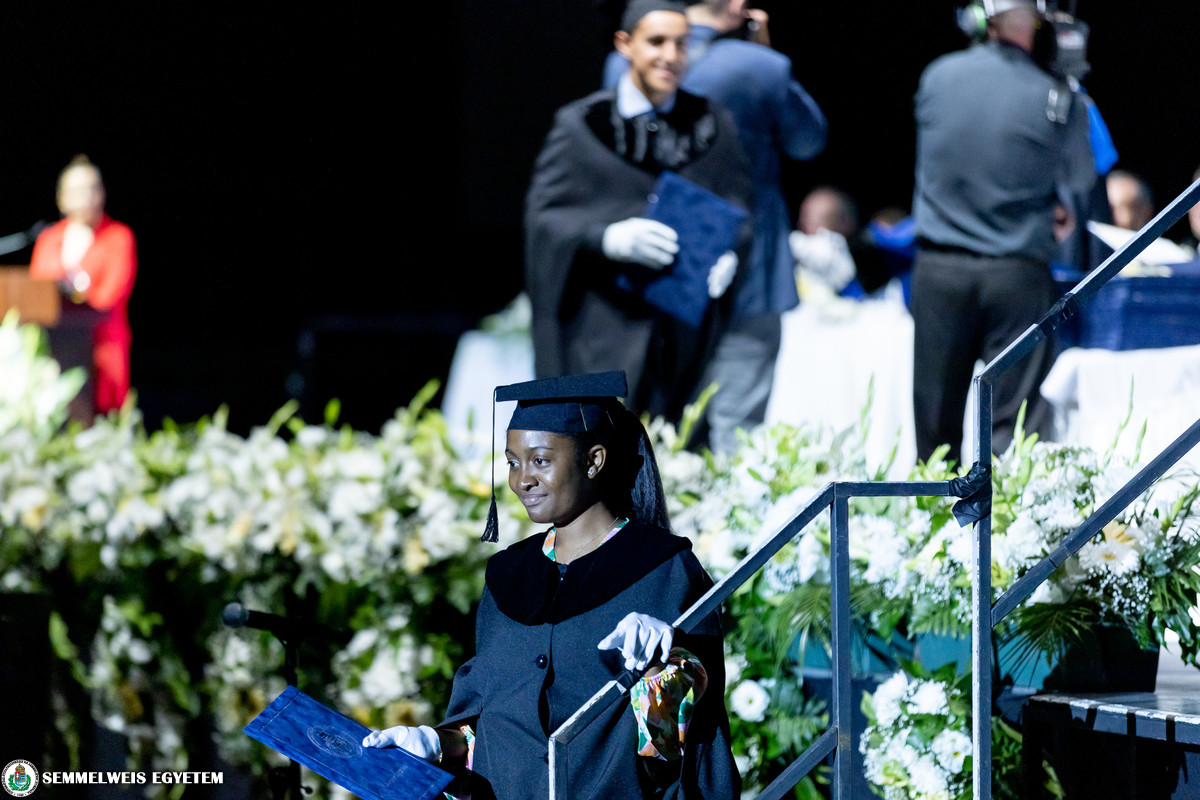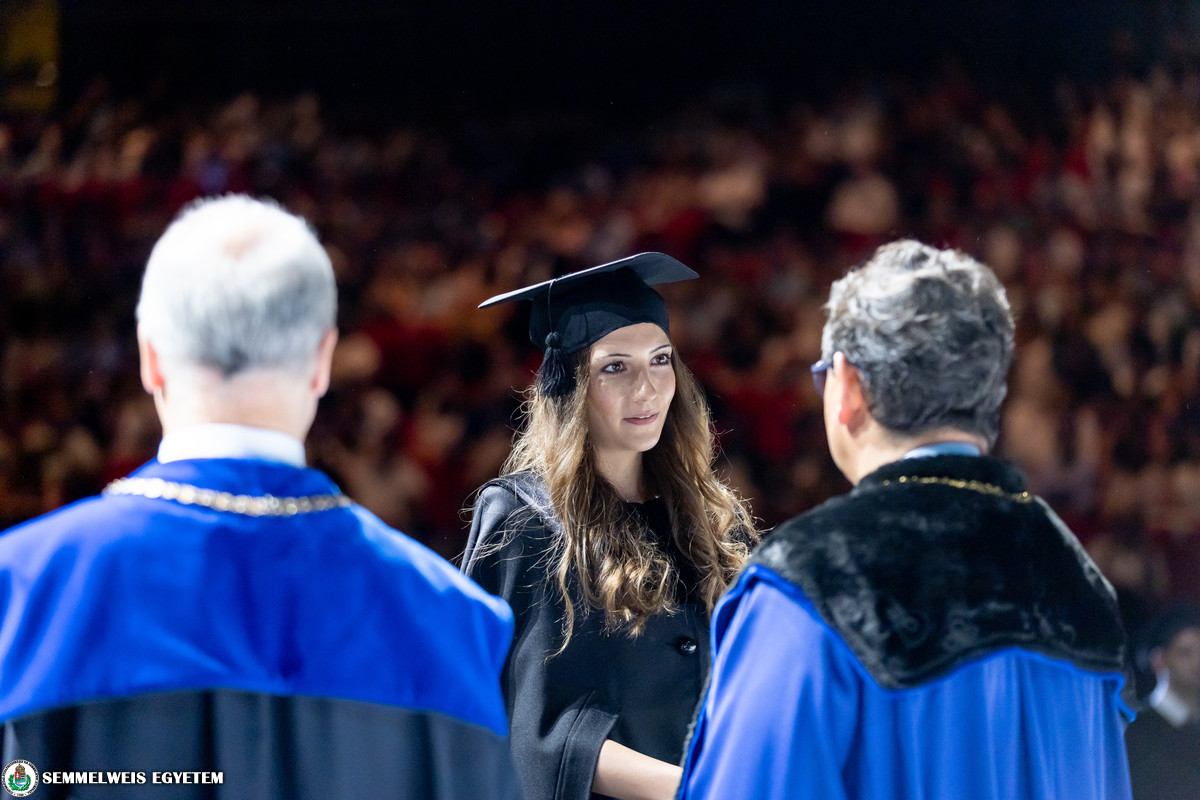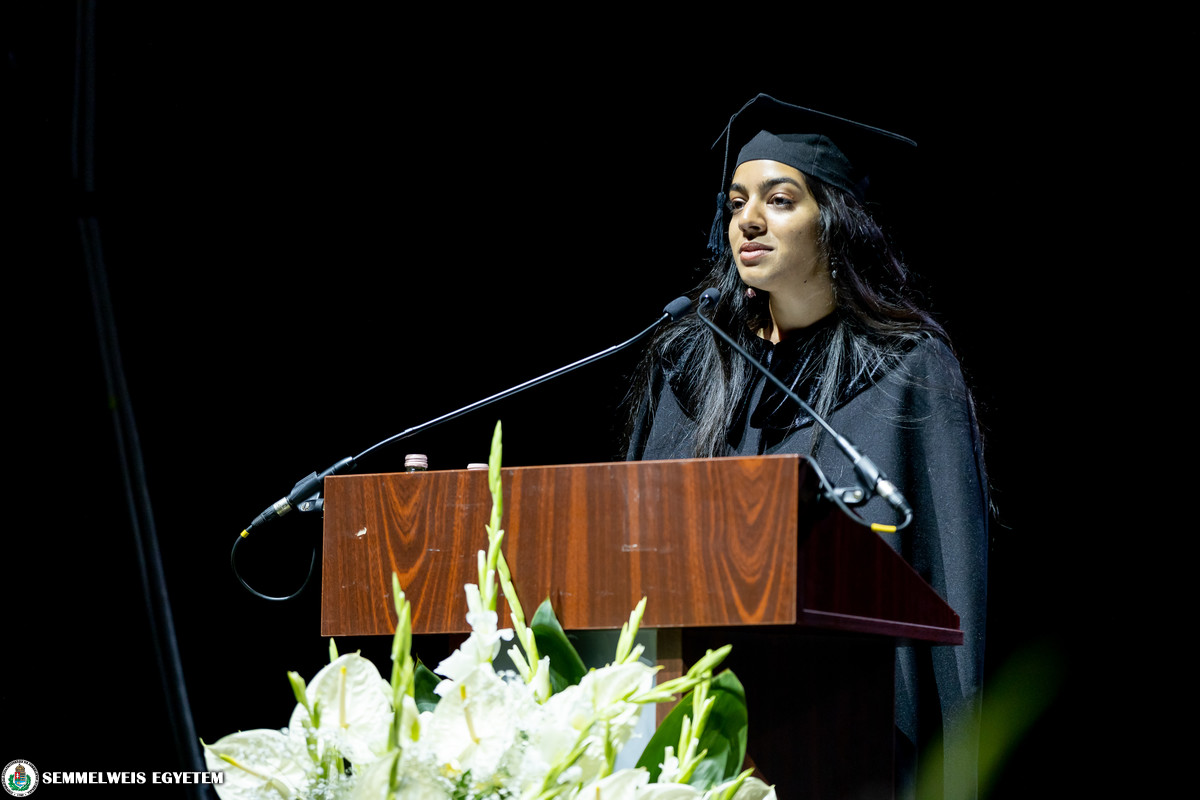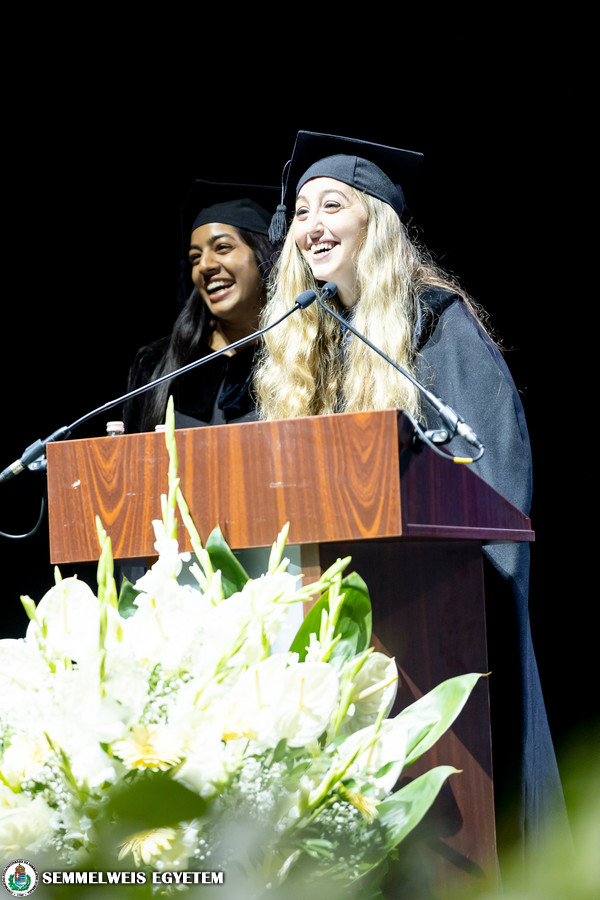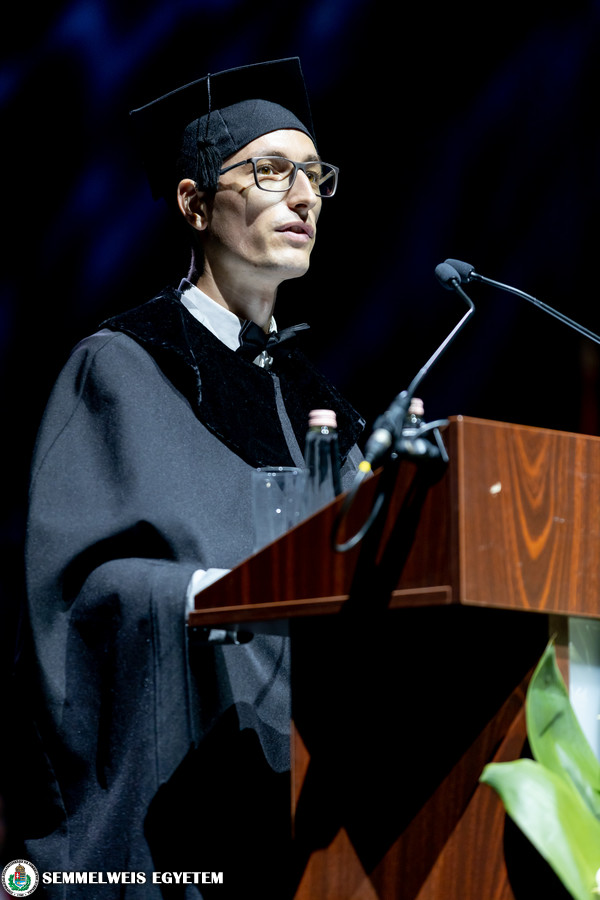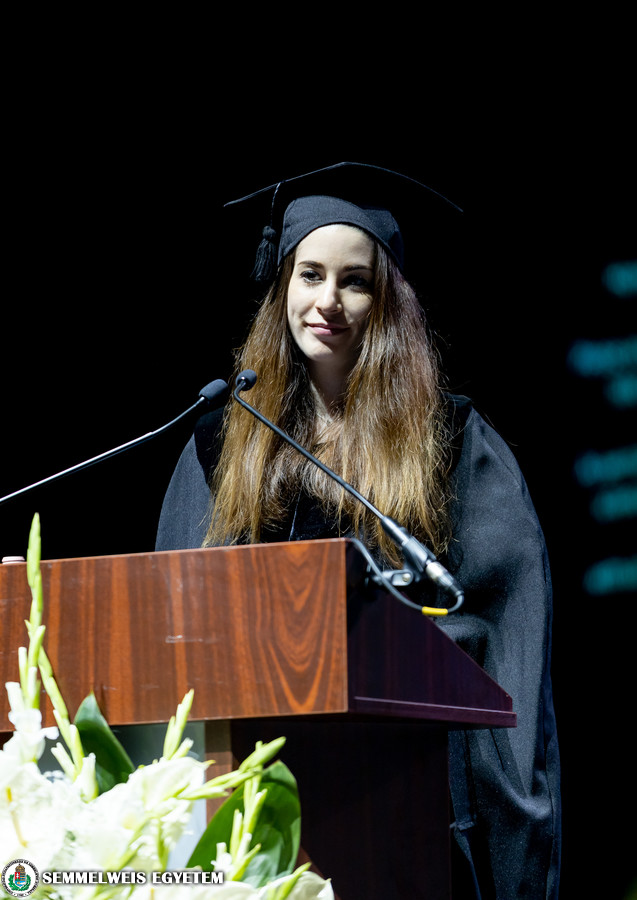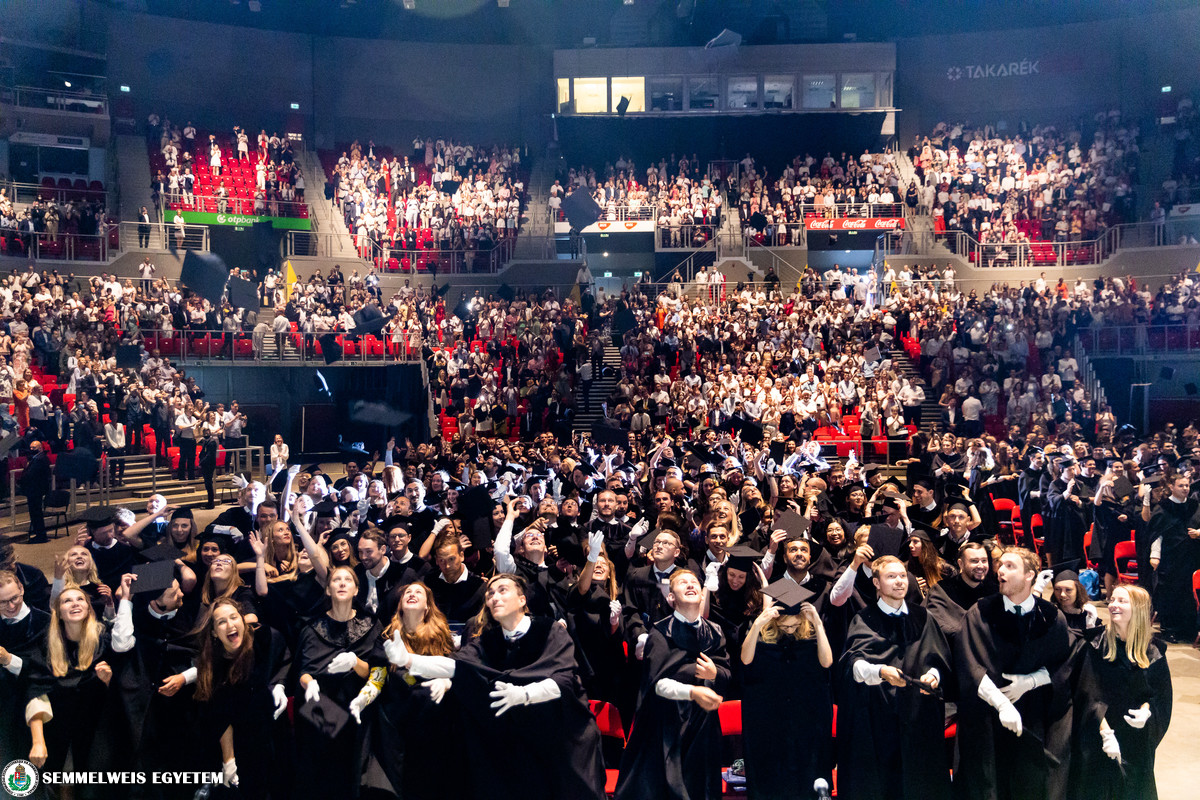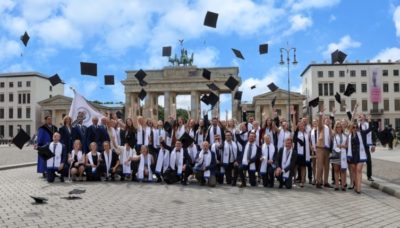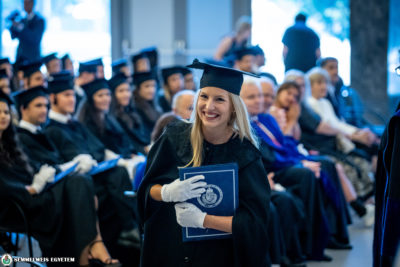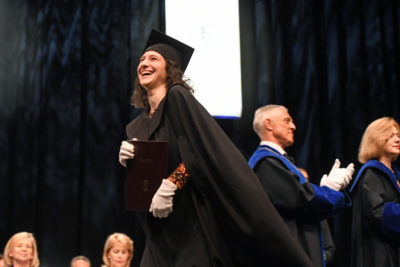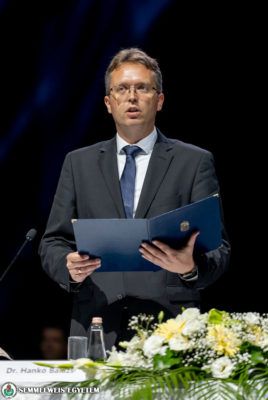 “A doctor’s chosen profession means that they never encounter easy situations, still these times of emergency are exceptional. The fact that we have managed to defeat the third wave of the pandemic is also owing to you, you were on the dam day and night!” – said Dr. Balázs Hankó, deputy state secretary of the Ministry for Innovation and Technology in charge of higher education, in his speech at the beginning of the ceremony. He noted that since last autumn, 62,000 shifts have been worked by medical and health science students, of which more than one-third, 21,678, were by Semmelweis University students. Last autumn, 506 of the 1000 students working in COVID care were Semmelweis students, while this year, 2,683 of the 9,000 secondments involved in the third wave of the epidemic were Semmelweis students. “Hungarian society will never forget this sacrifice!” – the deputy state secretary stressed.
“A doctor’s chosen profession means that they never encounter easy situations, still these times of emergency are exceptional. The fact that we have managed to defeat the third wave of the pandemic is also owing to you, you were on the dam day and night!” – said Dr. Balázs Hankó, deputy state secretary of the Ministry for Innovation and Technology in charge of higher education, in his speech at the beginning of the ceremony. He noted that since last autumn, 62,000 shifts have been worked by medical and health science students, of which more than one-third, 21,678, were by Semmelweis University students. Last autumn, 506 of the 1000 students working in COVID care were Semmelweis students, while this year, 2,683 of the 9,000 secondments involved in the third wave of the epidemic were Semmelweis students. “Hungarian society will never forget this sacrifice!” – the deputy state secretary stressed.
Dr. Balázs Hankó also touched upon the ongoing higher education model change, noting that Semmelweis University will be the leading medical and health sciences university of the country, Europe and even the world from August 1, 2021 in a renewed, more competitive model. He recalled the preamble of the relevant Act XX of 2021, which states that reason for the change is to help Semmelweis University be among the top 100 universities in the world and the top 5 medical universities in Europe, to implement the necessary developments.
“This is a historic moment, when a law is passed on the initiative of the leaders and governing bodies of the university, and a regulatory environment is created, which aims to set Hungarian universities, including Semmelweis University, which is also the first in international recognition, on a development path not seen since Klebelsberg,” said Dr. Hankó. He added that the model change, the related new financing and developments, the Semmelweis University XXI development program supported by the government, will determinate the life of the university not just for the 21st century, but for the next quarter of a millennium.
Next, Dóra Stauder, a candidate of Doctor of Medicine submitted the conferment request and then the 562 students took their solemn oath in three languages. Following the oath, Dr. Miklós Kellermayer, dean of the Faculty of Medicine conferred upon the graduating students the degree of Doctor of Medicine. The title grants all the rights and duties that doctors are entitled to according to Hungarian law. Dr. Béla Merkely and Dr. Miklós Kellermayer congratulated every newly conferred doctor with a handshake. At the ceremony held in the Budapest Sports Arena, a total of 326 students taking part in the Hungarian program, 130 in the English and 106 in the German program were named Doctors of Medicine.
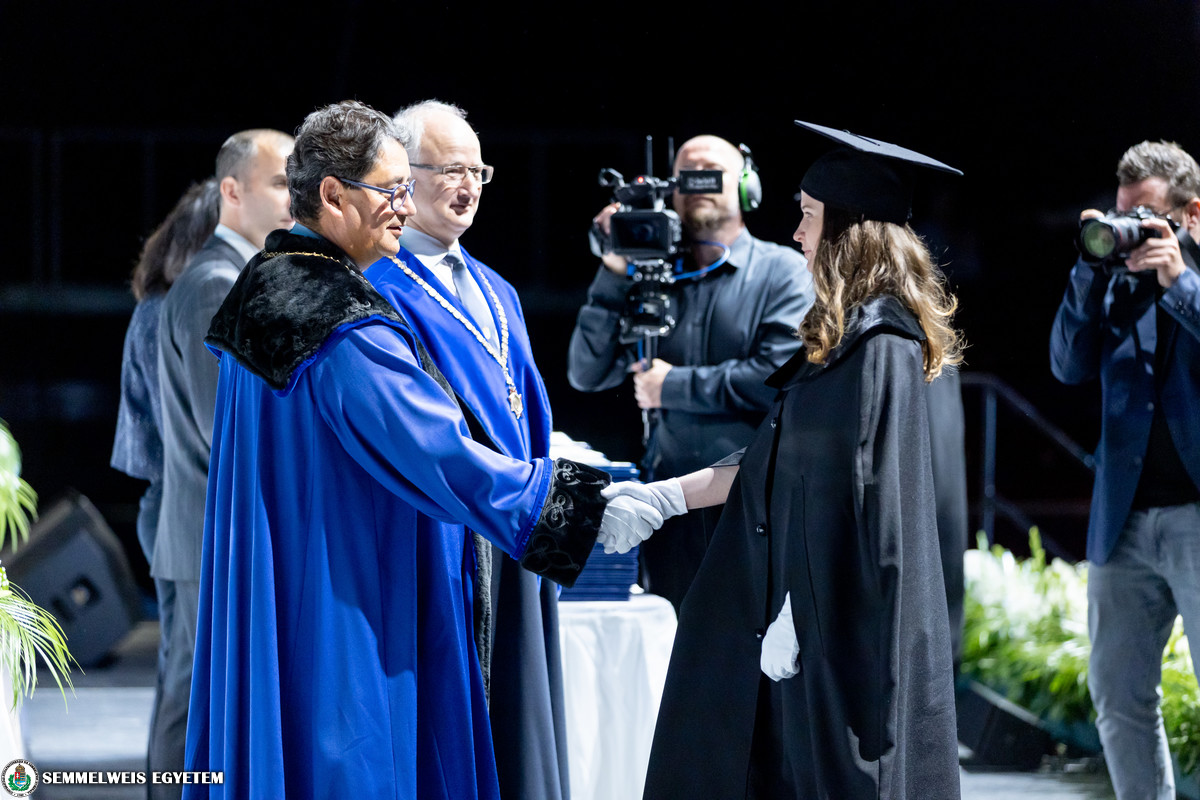
On behalf of the new doctors, Dr. Dóra Stauder promised they would do everything in their power to serve science, health care, humanity and their country, in the honor of Semmelweis University.
Dr. Bendegúz Bakos addressed the audience on behalf of the students graduating in the Hungarian language program, thanking everyone for the trust placed in them, as well as the opportunities and support. He noted that the foundation has been laid, after which will now be followed by the construction, pointed out that they received a stable and robust foundation at the university.
On behalf of the students graduating the English-language program two doctors held speeches, Dr. Jabri Ingy and Dr. Patel Anmol. They thanked their families and friends for their support, their instructors for their guidance, and the patients that allowed them to examine them over the years, and their efforts to understand their broken Hungarian. “We have learned the importance of teamwork and leadership, to adapt to stressful situations and to have conviction in our decisions,” they said.
Dr. Hakan Car Aydar spoke on behalf of the students graduating the German-language program. He thanked the first-class training provided by Semmelweis University and noted how the coronavirus pandemic highlighted the importance of a doctor’s responsibility. “We learned how important health and our profession is to people, while from the entire Semmelweis family we gained extensive experience on what it means to take responsibility,” he said,
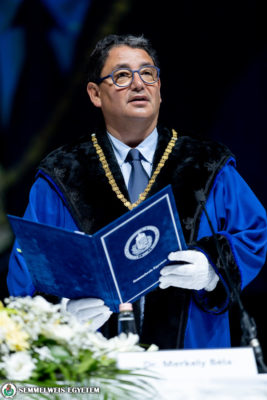 “Our freshly graduated students have turned into medical doctors in an extraordinary period full of challenges not seen before in our lifetime,” said rector Merkely in his commencement speech. “The generation that learned the art of healing during a pandemic is a special one, and I believe that in 5-10-15 years the sentence ‘I finished medical school during the coronavirus pandemic’ will have special added meaning,” the rector continued. He added that these few words indicate the extraordinary solidarity and bond that formed between students, as well as the exemplary social responsibility that was demonstrated at the departments, in hospitals, or at screening sites. “This forms a special, long-term bond, as you have experienced what it’s like to work for a common goal, and to take on more, on top of your basic tasks, if the situation so requires,” he emphasized.
“Our freshly graduated students have turned into medical doctors in an extraordinary period full of challenges not seen before in our lifetime,” said rector Merkely in his commencement speech. “The generation that learned the art of healing during a pandemic is a special one, and I believe that in 5-10-15 years the sentence ‘I finished medical school during the coronavirus pandemic’ will have special added meaning,” the rector continued. He added that these few words indicate the extraordinary solidarity and bond that formed between students, as well as the exemplary social responsibility that was demonstrated at the departments, in hospitals, or at screening sites. “This forms a special, long-term bond, as you have experienced what it’s like to work for a common goal, and to take on more, on top of your basic tasks, if the situation so requires,” he emphasized.
The rector recalled that even during the pandemic, what led the university was the notion that medical and health sciences training is inconceivable without practical education and exams. He also pointed out that from the beginning of the pandemic, Semmelweis University – true to being a leading medical and health sciences university of Central Europe – took on a leading role in the fight against the coronavirus, using the tools at its disposal. “We have emerged from the recent period stronger; the public support and recognition of the university is high, as we have proven we are able to hold our own, while on a community level we experienced the strength of cooperation, of working together, on a perhaps unprecedented level. Your participation in this was key,” he declared.
The global pandemic hit the university just when it was celebrating its 250th anniversary; nevertheless, in this extraordinary period we could not have paid better tribute to our anniversary and the past 250 years than with how we faced the challenge, with the performance demonstrated by our students and colleagues
– stated Dr. Merkely, noting that this is exactly what the university’s history and great predecessors teaches us. “I am proud that every Semmelweis Citizen recognized the responsibility we have for having chosen the medical profession,” he said.
The rector also talked about the practice-oriented reform of the medical curriculum. He noted that however advanced science is, doctor-patient bedside contact must always be emphasized during clinical training, and it is this attitude that takes priority in the reform, and this is what has passed on to students before sending them on their way as they leave the university’s gates.
“Always remember that you have chosen a wonderful profession, at whose center are the people,” the rector said as a parting note.
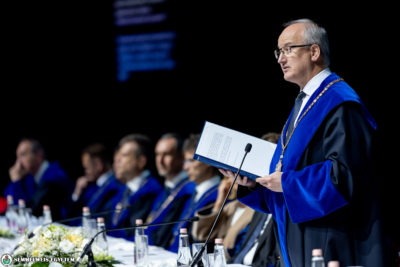 Dean Dr. Miklós Kellermayer recalled that in the first week of training of the now graduated students, he asked them what kind of doctors they would like to become. The right answer is a “good doctor,” who in addition to being empathetic with patients, is above all a thinking person who has an unquenchable thirst for learning as perfectly as possible how nature works. “Six years have passed since then and you have learned basic medical knowledge and skills, and learned to value time, perseverance and hard work. Due to the coronavirus, you had to become adults from one day to the next and got a glimpse of what it’s like to serve and become a doctor,” said the dean. He noted how proud he was of how many students in the Hungarian, English and German programs took part in the pandemic defense and also pointed out this is the first class to graduate as doctors under the renewed curriculum.
Dean Dr. Miklós Kellermayer recalled that in the first week of training of the now graduated students, he asked them what kind of doctors they would like to become. The right answer is a “good doctor,” who in addition to being empathetic with patients, is above all a thinking person who has an unquenchable thirst for learning as perfectly as possible how nature works. “Six years have passed since then and you have learned basic medical knowledge and skills, and learned to value time, perseverance and hard work. Due to the coronavirus, you had to become adults from one day to the next and got a glimpse of what it’s like to serve and become a doctor,” said the dean. He noted how proud he was of how many students in the Hungarian, English and German programs took part in the pandemic defense and also pointed out this is the first class to graduate as doctors under the renewed curriculum.
“You have just become the torchbearers of one of humanity’s greatest, holy professions, taking your oaths using words more than 2000 years old. Don’t forget, your calling is to ease the pain of a suffering humanity and wipe its tears away. Strive to become good doctors and become the best in your profession,” said Dr. Kellermayer.
For the full gallery of the event, see our original Hungarian article.
Pálma Dobozi, Tamás Deme
Translation: Tamás Deme
Photo: Kovács Attila – Semmelweis University
